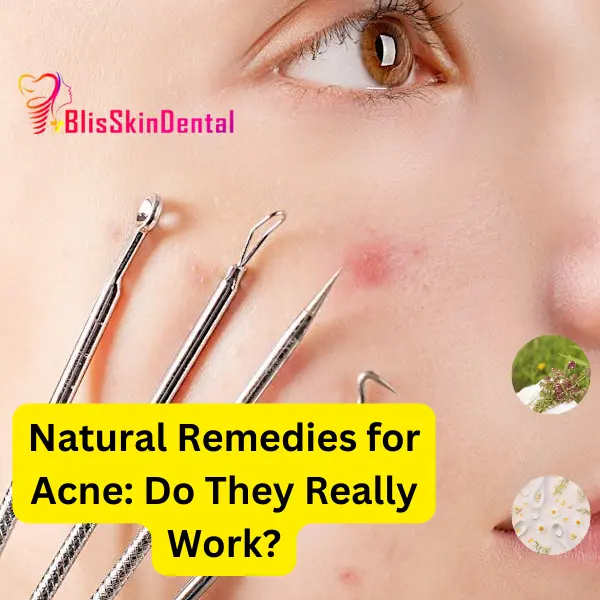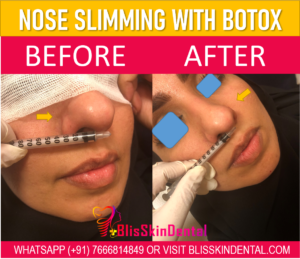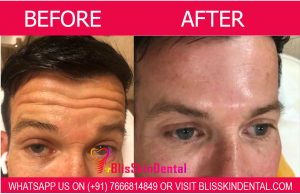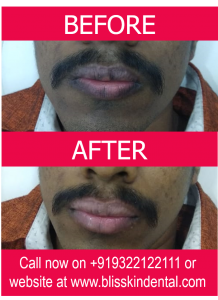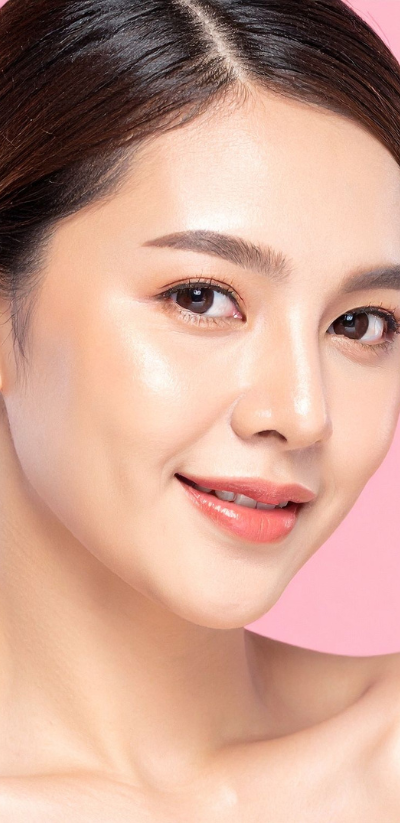Hey there! If you’re reading this, chances are you’ve been on a rollercoaster ride with acne.
Trust me, I’ve been there too. Those pesky pimples seem to pop up at the worst times, don’t they?
Well, today we’re diving into the world of natural acne remedies. You’ve probably heard about them from your friends, seen them on social media, or even tried a few yourself. But the big question is: do they actually work?
The Acne Struggle Is Real?
Picture this: You wake up on the morning of a big date or an important job interview, and there it is – a massive zit right on your chin.
Ugh! It’s frustrating, embarrassing, and can really mess with your confidence. I remember feeling like I’d tried every product on the shelf, from harsh chemicals to expensive creams, with little to no success.
But what if I told you the solution might be hiding in your kitchen or garden?
That’s right, we’re talking about natural acne remedies. These organic acne solutions have been gaining popularity, and for good reason.
They promise to clear your skin without the harsh side effects of conventional treatments. Sounds too good to be true? Let’s find out.
Why Go Natural?
Before we dive into the specifics, let’s talk about why you might want to consider natural acne treatments in the first place.
- Gentler on your skin: Many over-the-counter acne products can be harsh and dry, especially for sensitive skin.
- Fewer side effects: Natural ingredients are less likely to cause irritation or long-term skin damage.
- Cost-effective: Many natural remedies use ingredients you already have at home.
- Holistic approach: Natural treatments often focus on overall skin health, not just fighting acne.
The Power of Nature: Top Natural Acne Remedies
Let’s explore some of the most popular natural acne-fighting ingredients and how they work:
Tea Tree Oil: Nature’s Antiseptic
Tea tree oil is like the superhero of essential oils for acne. It’s known for its powerful antibacterial properties, which can help kill the bacteria that cause acne. Plus, it can reduce inflammation and redness.
How to use it: Mix a few drops of tea tree oil with a carrier oil like jojoba oil and apply it to affected areas. But be careful – it’s potent stuff, so always dilute it!
Aloe Vera: The Soothing Superstar
We all know aloe vera for its sunburn-soothing powers, but did you know it’s great for acne too? It can help reduce inflammation and redness, and its natural antibacterial properties can fight acne-causing bacteria.
How to use it: Apply fresh aloe vera gel directly to your skin, or look for products that contain aloe as a main ingredient.
Apple Cider Vinegar: The pH Balancer
Apple cider vinegar is like a reset button for your skin’s pH. It can help balance oil production and has antimicrobial properties that fight acne-causing bacteria.
How to use it: Mix equal parts apple cider vinegar and water, apply to your skin with a cotton ball, and rinse after a few minutes.
Honey Masks: Sweet Relief for Your Skin
Honey isn’t just for your tea – it’s a fantastic natural acne treatment too! It’s antibacterial, helps retain moisture, and can even help fade acne scars.
How to use it: Apply raw honey directly to your skin as a mask, leave for 10-15 minutes, then rinse off with warm water.
Green Tea Extract: Antioxidant Power
Green tea contains antioxidants that can help reduce inflammation and fight free radicals. It can also help control oil production.
How to use it: Brew some green tea, let it cool, and use it as a face wash or toner.
The Role of Diet in Acne Management
You’ve probably heard the saying “You are what you eat.” Well, when it comes to acne, there might be some truth to that. While diet alone won’t cure acne, certain foods can help or hinder your skin health.
Foods That May Help
- Fruits and vegetables (rich in antioxidants)
- Omega-3 fatty acids (found in fish, flaxseeds, and walnuts)
- Zinc-rich foods (like pumpkin seeds and lean meats)
Foods to Limit
- High-glycemic foods (like white bread and sugary snacks)
- Dairy (especially skim milk)
- Processed foods
Remember, everyone’s skin is different. What works for one person might not work for another, so pay attention to how your skin reacts to different foods.
Skincare Routine: The Foundation of Healthy Skin
While natural remedies can be effective, they work best as part of a consistent skincare routine. Here’s a simple routine to get you started:
- Cleanse: Use a gentle, natural cleanser twice a day.
- Tone: Try a natural toner like witch hazel or green tea.
- Treat: Apply your chosen natural acne treatment.
- Moisturize: Yes, even oily skin needs moisture! Try jojoba oil, which is similar to your skin’s natural sebum.
The Science Behind Natural Remedies
Now, I know what you’re thinking: “This all sounds great, but where’s the proof?” It’s a fair question.
While natural remedies have been used for centuries, scientific research on their effectiveness is still catching up.
Some natural ingredients, like tea tree oil, have been studied extensively. A study published in the Medical Journal of Australia found that a 5% tea tree oil gel was as effective as 5% benzoyl peroxide in treating acne.
Other remedies, like honey and aloe vera, have shown promising results in smaller studies, but more research is needed to fully understand their effects on acne.
The Ayurvedic Way
Ayurveda, the ancient Indian system of medicine, offers its perspective on acne treatment.
Ayurvedic herbs like neem, turmeric, and holy basil have been used for centuries to clear acne naturally. These herbs are known for their anti-inflammatory and antibacterial properties.
For example, a turmeric paste can be applied topically to reduce inflammation and fight bacteria. Just mix turmeric powder with a bit of water or honey to create a paste, apply it to your skin, and rinse off after 10-15 minutes.
Gentle Natural Acne Treatments for Sensitive Skin
If you have sensitive skin, you know the struggle of finding acne treatments that don’t irritate. Natural remedies can be a great option. Here are some gentle treatments to try:
- Oatmeal mask: Mix ground oatmeal with water to create a paste. It’s soothing and can help absorb excess oil.
- Chamomile tea compress: Brew some chamomile tea, let it cool, and apply it to your skin with a soft cloth.
- Cucumber slices: Place cool cucumber slices on affected areas to reduce inflammation and redness.
Natural Alternatives to Benzoyl Peroxide
Benzoyl peroxide is a common acne-fighting ingredient, but it can be harsh on some skin types. If you’re looking for natural alternatives, consider:
- Manuka honey: Known for its strong antibacterial properties.
- Salicylic acid from willow bark: A natural source of this acne-fighting ingredient.
- Tea tree oil: As mentioned earlier, it’s been shown to be as effective as benzoyl peroxide in some studies.
The Verdict: Do Natural Acne Remedies Work?
After diving deep into the world of natural acne remedies, I can say that yes, they can work – but with a few caveats.
First, natural doesn’t always mean better or safer. Some natural ingredients can cause allergic reactions or irritation, especially if used incorrectly.
Second, natural remedies often take longer to show results compared to conventional treatments. Patience is key!
Lastly, what works for one person may not work for another. It’s all about finding the right combination of treatments for your unique skin.
My advice? Start with patch tests, introduce new remedies one at a time, and give them a few weeks to work before moving on. And remember, if your acne is severe or persistent, it’s always best to consult a dermatologist.

